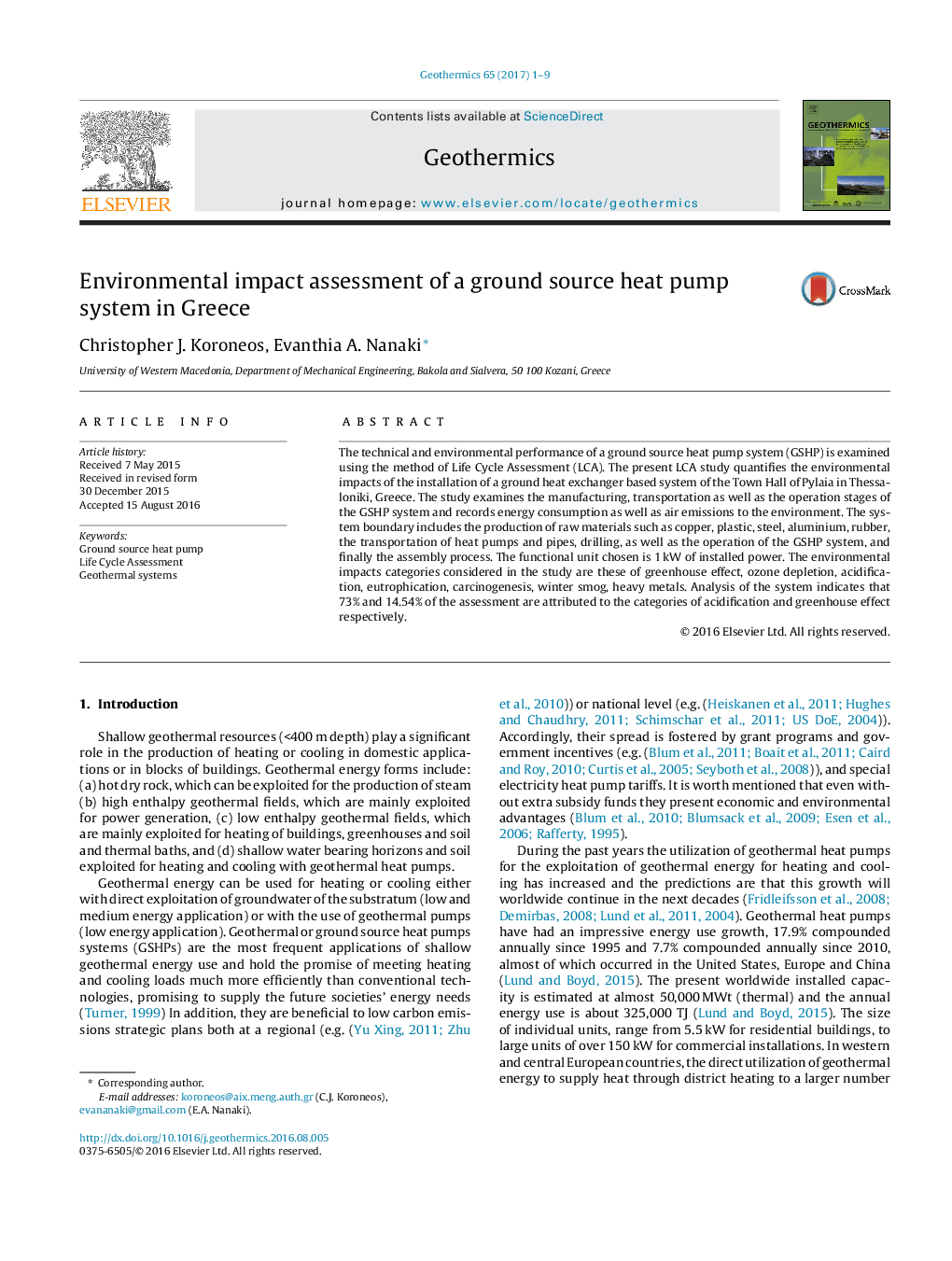| Article ID | Journal | Published Year | Pages | File Type |
|---|---|---|---|---|
| 1742149 | Geothermics | 2017 | 9 Pages |
•The technical and environmental performance of a Ground Source Heat Pump system is examined.•The methodology of LCA is applied to the installation of a GSHP of the Town Hall of Pylaia in Greece.•System boundary includes: production, transportation andoperation of the GSHP system.•Greenhouse effect, ozone depletion, acidification, eutrophication, carcinogenesis, winter smog & heavy metals are assessed.•The greatest environmental impact of the system is towards acidification, reaching up to 73%.
The technical and environmental performance of a ground source heat pump system (GSHP) is examined using the method of Life Cycle Assessment (LCA). The present LCA study quantifies the environmental impacts of the installation of a ground heat exchanger based system of the Town Hall of Pylaia in Thessaloniki, Greece. The study examines the manufacturing, transportation as well as the operation stages of the GSHP system and records energy consumption as well as air emissions to the environment. The system boundary includes the production of raw materials such as copper, plastic, steel, aluminium, rubber, the transportation of heat pumps and pipes, drilling, as well as the operation of the GSHP system, and finally the assembly process. The functional unit chosen is 1 kW of installed power. The environmental impacts categories considered in the study are these of greenhouse effect, ozone depletion, acidification, eutrophication, carcinogenesis, winter smog, heavy metals. Analysis of the system indicates that 73% and 14.54% of the assessment are attributed to the categories of acidification and greenhouse effect respectively.
